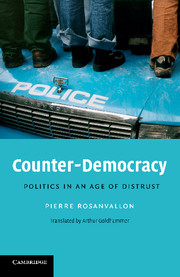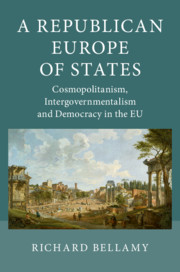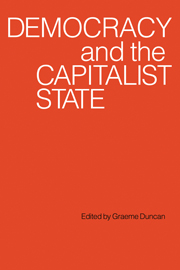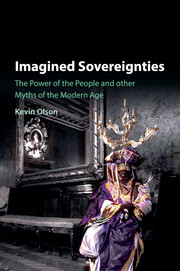Counter-Democracy
Democracy is established as a generally uncontested ideal, while regimes inspired by this form of government fall under constant criticism. Hence, the steady erosion of confidence in representatives that has become one of the major political issues of our time. Amidst these challenges, the paradox remains that while citizens are less likely to make the trip to the ballot box, the world is far from entering a phase of general political apathy. Demonstrations and activism abound in the streets, in cities across the globe and on the internet. Pierre Rosanvallon analyses the mechanisms used to register a citizen's expression of confidence or distrust, and then focuses on the role that distrust plays in democracy from both a historical and theoretical perspective. This radical shift in perspective uncovers a series of practices - surveillance, prevention, and judgement - through which society corrects and exerts pressure.
- Offers a provocative perspective on the state of contemporary global politics
- The Seeley Lectures is an established series publishing the best in contemporary political thought
- Pierre Rosanvallon is a world-renowned political theorist and the translator, Arthur Goldhammer, is the most eminent French translator working in the social sciences
Reviews & endorsements
'… very refreshing and innovative …' Political Studies Review
Product details
December 2008Paperback
9780521713832
350 pages
216 × 137 × 17 mm
0.48kg
Available
Table of Contents
- Preface
- Introduction
- Part I. Overseeing Democracy:
- 1. Vigilance, denunciation, evaluation
- 2. The overseers
- 3. The thread of history
- 4. Legitimacy conflicts
- Part II. The Sovereignty of Prevention:
- 5. From the right of resistance to complex sovereignty
- 6. Self-critical democracies
- 7. Negative politics
- Part III. The People as Judge:
- 8. Historical references
- 9. Almost legislators
- 10. The preference for judgement
- Part IV. Unpolitical Democracy:
- 11. The sense of powerlessness and symbols of depoliticization
- 12. The populist temptation
- 13. Lessons of unpolitical economy
- 14. Conclusion: the modern mixed regime.









